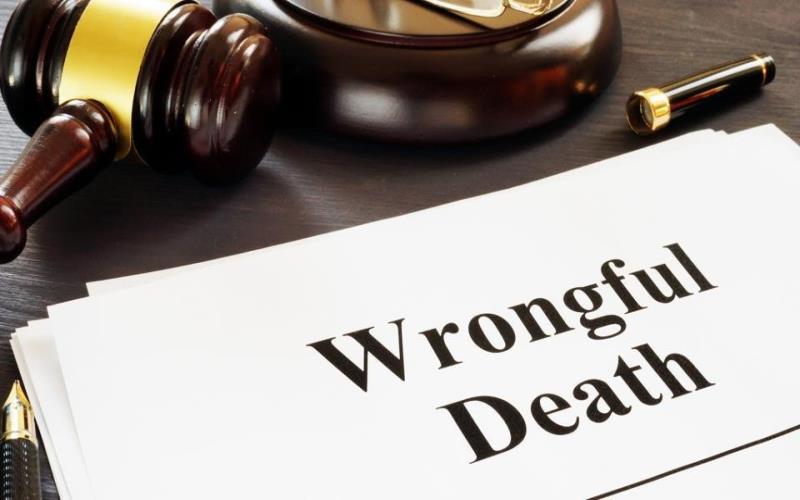Have you ever faced the heartbreak of losing someone due to another’s careless actions? It’s a profound pain compounded by the feeling that it could have been prevented. Understanding the legal avenues available, like wrongful death claims, becomes crucial in such moments. Let’s explore the essential facts about wrongful death claims, offering clarity and guidance through this complex legal terrain.
What Is a Wrongful Death Claim?
A wrongful death claim arises when a person’s death results from another party’s negligence or intentional act. This legal recourse allows the deceased’s loved ones to seek compensation for their loss. The circumstances leading to these claims can vary widely, from a fatal collision on the road to a deadly mistake in a hospital. The essence of such a claim is to hold the responsible party accountable and to support the survivors who face emotional and financial turmoil in the absence of their loved one.
Who Can File a Wrongful Death Claim?
The eligibility to file a wrongful death claim is typically limited to close family members. This includes spouses, children, and parents of unmarried children, reflecting those most affected by the loss. Some jurisdictions extend this right to financial dependents, siblings, or even grandparents, recognizing the broad spectrum of relationships affected by such a profound loss. It’s vital to consult local laws to understand who can rightfully initiate these claims in your specific context.
Types of Damages Covered
Wrongful death claims aim to alleviate the financial strain placed on the deceased’s family. When you file a wrongful death claim, you can potentially recover damages for:
- Medical Expenses: Costs incurred for treating the deceased before their death.
- Funeral and Burial Costs: Funeral services and burial or cremation expenses.
- Loss of Income: The deceased’s earnings would have provided had they lived.
- Loss of Inheritance: The value of what the deceased would have saved and left as inheritance.
- Loss of Support and Services: Compensation for the services the deceased would have provided, such as childcare, household chores, and more.
- Loss of Consortium: Damages awarded to spouses for losing companionship, affection, and sexual relations.
- Loss of Guidance and Nurturing: Compensation for the guidance and nurturing the deceased would have provided their children.
- Pain and Suffering of the Deceased: If the deceased suffered before death, compensation for their pain and suffering may be recovered.
- Punitive Damages: In some cases, if the defendant’s actions were particularly reckless or egregious, punitive damages might be awarded to punish the wrongdoer and deter similar behavior in the future.
Statute of Limitations
Time is a critical factor in wrongful death claims. The statute of limitations sets a deadline for initiating legal action, which can vary significantly between states. This period often starts from the death date and underscores the importance of timely legal consultation. Acting swiftly ensures that the opportunity to seek justice does not slip away due to procedural timelines.
The Role of a Wrongful Death Attorney
Facing the legal system while grieving can be overwhelming. A wrongful death attorney specializes in navigating these cases with sensitivity and expertise. They advocate on behalf of the family, managing the intricacies of the claim, from evidence gathering to negotiating settlements. Their support can be instrumental in securing a fair outcome, allowing families to focus on healing.
Evidence Is Key
The success of a wrongful death claim hinges on the strength of the evidence presented. This includes documentation of the defendant’s negligence, the financial impact of the loss, and the emotional suffering endured by the family. Effective evidence collection and presentation are crucial, requiring professional legal expertise to build a compelling case.
Settlements vs. Trials
While some wrongful death claims are resolved through settlements, offering a quicker resolution and financial relief, others may proceed to trial if negotiations fail. Trials can be lengthy and emotionally challenging but may result in higher compensation. The choice between settlement and trial depends on various factors, including the strength of the evidence and the family’s wishes.
Compensation Can’t Replace Loss
Ultimately, compensation for wrongful death serves to ease the financial burden following a tragic loss, but it cannot replace the loved one lost. The legal process aims to provide a sense of justice and closure for the bereaved, acknowledging the profound impact of their loss while helping them move forward.
Summing Up
Navigating a wrongful death claim can be a daunting journey, laden with emotional and legal challenges. Understanding these key aspects of wrongful death claims empowers families to make informed decisions during a difficult time. While no amount of compensation can fill the void left by a loved one’s untimely death, pursuing a wrongful death claim can offer a path to financial stability and a measure of justice in their memory.


